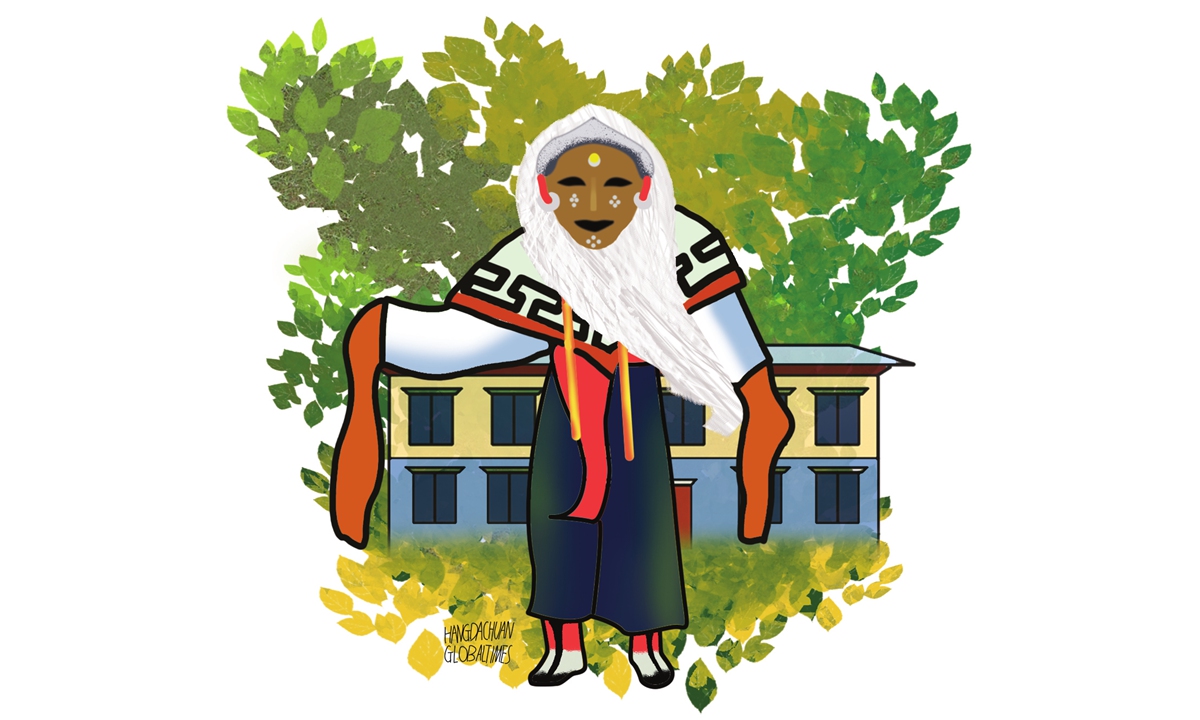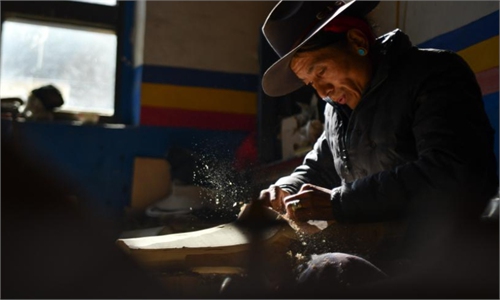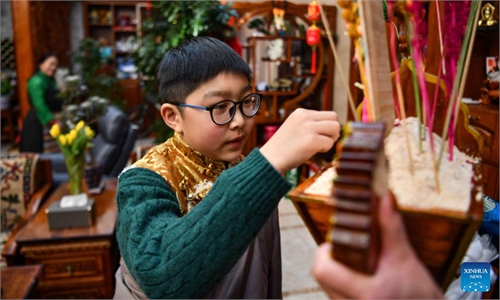
Illustration: Hang Dachuan/Global Times
Recently, Tashi Choden village in Shannan, Southwest China's Xizang Autonomous Region, was listed among the second batch of national-level tourist communities in China. Known as the place where Tibetan Opera was born, Shannan has long enjoyed high recognition among tourists.The latest listing will surely add to its popularity and, as a result, boost the economic return for China's combination of protecting traditional culture and revitalizing the countryside.
Tashi Choden village enjoys a favorable location as it is only five kilometers from Khesum village, the first village to carry out Xizang's Democratic Reform in 1959, and Yumbulagang, a monastery built in the 2nd century BC, which makes it the first monastery in Tibetan history.
With improved transportation, the village has developed into a tourist spot featuring traditional Yarlung Culture in Shannan, the birthplace of Tibetan culture.
Tibetan Opera is a comprehensive art form, combining Tibetan myths, legends, folk songs, dance, narration and acrobatics as well as religious music.
It was recognized as part of the first batch of national-level cultural heritage in China and also as a UNESCO intangible cultural heritage.
Since Tibetan Opera was created by 14th-century Tibetan Buddhism master Thangtong Gyalpo in Shannan, this has earned Tashi Choden the name of the "first Tibetan Opera village."
Boasting a history of 600 years, the Tashi Shiba School of Tibetan Opera is the oldest school of its kind.
Actors wear yellow masks with white beard (different from the blue masks in other schools), and the operas are generally composed of three parts: the prelude, or Don in the Tibetan language; the formal play or Shu; and the conclusion or Tashi.
Since the fifth Dalai Lama (1617-82), the Tashi Shiba School of Tibetan Opera gradually grew prominent at festivals and events such as the Tibetan New Year, the Lhasa Shoton Festival, the Wangguo Festival, the Zangnan Cultural Heritage Day, the Yarlung Cultural Festival, and the Yarlung Commodities Trade and Cultural Exchanges Fair.
In recent years, Tashi Choden village has been engaged in promoting the Tibetan Opera, known as "the living fossil" of Tibetan culture, through revitalizing the rural area.
In contrast to Western media reports of "cultural genocide," this Tibetan village is a shining example of what really happens in the region, as it has done a good job in preserving time-honored, characteristic Tibetan Opera through tourism and rural revitalization.
With such cultural advantages, Tashi Choden village has made great efforts to improve tourism. It has invested more than 50 million yuan ($7.27 million) in various renovation projects, including building traditional home inns, repairing roads and cleaning up local rivers and canals to create an appealing environment for tourists.
A large-scale Tibetan training school was set up in the village cultural square to introduce the Tashi Shiba School of Tibetan Opera to tourists and allow them to experience the unique charm of this ancient art.
Efforts have also been made to add to the number of Tibetan Opera plays and improve the quality of performances.
In addition, the village has also cooperated with some professional tourist companies to attract more firms and brands to enter the village. It has launched several tourism promotion campaigns in Lhasa and other Chinese cities like Wuhan and Hefei.
Over the years, the village has earned big from tourism, attracting villagers to return to the village from working in the cities. It has become a national key model village for rural tourism, drawing more and more tourists from across the country to visit.


